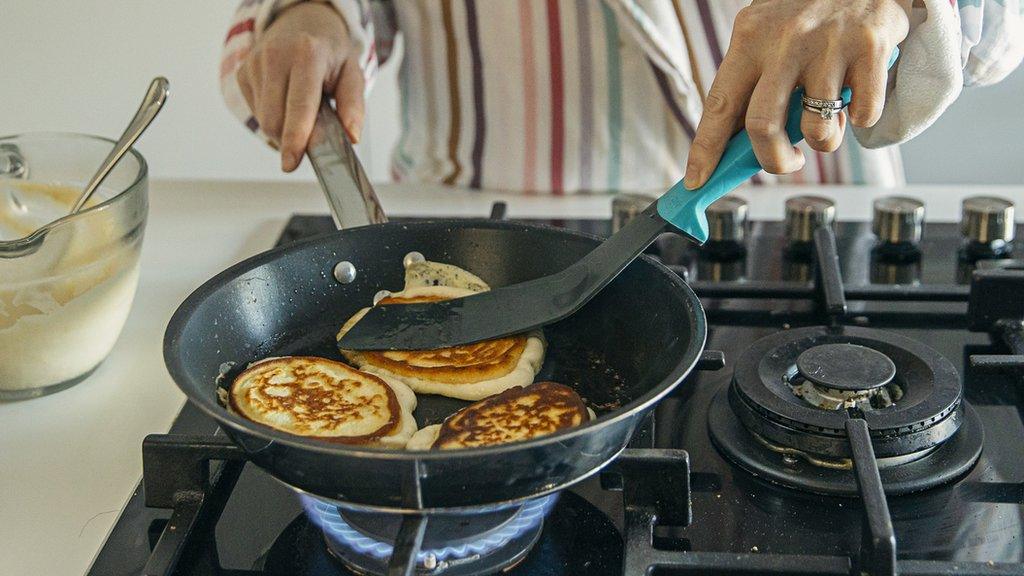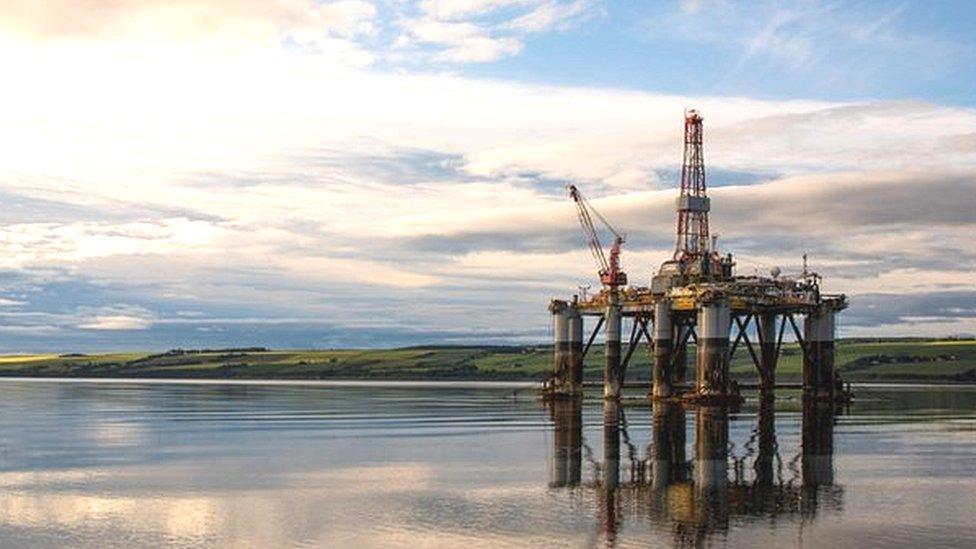Not just hardest up that need bill help - Sir Keir Starmer
- Published
Starmer: Energy bills crisis needs long term planning
Sir Keir Starmer has said Labour's plan to freeze energy prices for all consumers is justified by the scale of expected rises this winter.
He defended his call to spend £29bn on keeping bills down for everyone across the board, rather than more targeted payments.
Many millions - not just "the hardest up" - would find it hard to keep up with payments, he told the BBC.
He also claimed freezing prices for all would also help tame rising inflation.
All households are due to receive £400 payments to help with rising bills, with additional payments for the low-paid, pensioners and the disabled.
Labour has now suggested the £400 payments should be cancelled, with the government footing the the bill to keep the price cap at £1,971 a year for typical households between October and March.
Energy prices have already increased this year and are projected to soar again this winter, with one forecast predicting capped costs could hit £4,200 next year.
Labour says its plan to freeze the cap would be paid for by extending the windfall tax on oil and gas firms, and savings to government debt repayments caused by a lower rate of inflation overall.
Paul Johnson, director of the independent Institute for Fiscal Studies (IFS), has said protecting everyone from prices rises was a "very expensive thing to do".
He added that Labour's scheme would have to be extended beyond April next year to reduce inflation in the long term.
Quizzed about the benefits of designing a scheme that would also protect wealthy households, Sir Keir told the BBC's Alex Forsyth that "many, many millions of households are going to really struggle this year, because these are massive hikes".
"Therefore, it's very important we have something across the board," he said - adding the plan also "has this advantage of bring down inflation as well".
Asked about the impact of the length of the scheme on inflation, Sir Keir said he accepted his party would "have to answer that" at some point, but it was too early to say what the energy situation would be like next spring.

"I think this idea that most households are going to easily pay bills of £3,500 or £4,200, I don't think that's true," Sir Keir added.
"And I think many people viewing will say 'look, I may not be the hardest up, but I can't afford bills that high'".
In his BBC interview, Sir Keir also called for more government action to bring bills down in the longer term, including through boosting home insulation.
"All we do under this government is lurch from one crisis to the next," he said.
"Sooner or later, we've got to have a Labour government with a longer-term strategy. Otherwise, we're forever in a crisis mode".
Rival Tory plans
Tory leadership candidates Liz Truss and Rishi Sunak have also sparred in recent weeks over their respective plans to help people with living costs this winter.
Former chancellor Mr Sunak has suggested extending current government plans by spending around £5bn on further targeted payments to pensioners and the low-paid. He has also suggested spending around the same amount on cutting VAT on domestic energy.
However, Foreign Secretary Liz Truss has said her plan to cut taxes - including green levies on energy bills and reversing April's National Insurance rise - is a better way to help people with soaring living costs.
A source from the Truss campaign has said she would "target help with energy bills at the poorest".
Allies of Truss have also denied that her backer Simon Clarke was suggesting she would withdraw the £400 support payments already announced for this Autumn when he said on the weekend it was "odd" wealthy people would also benefit from the discount.
Neither candidate to replace Boris Johnson as prime minister has indicated they plan to freeze the price cap, or extend the windfall tax on oil and gas companies.
The Treasury is working up options to help with prices over the winter - although Cabinet Office Minister Kit Malthouse has said any decisions will have to wait until Mr Johnson's successor takes office on 6 September.
Rejecting suggestions the government was not functioning properly during the leadership race, he said the preparations would ensure the next prime minister is able to take "quick and early decisions" about what to do.
"Obviously the energy price cap changes won't kick in until October - that does give time for our prime minster to take the decisions that are required in early September," he added.
Related topics
- Published15 August 2022

- Published22 October 2024

